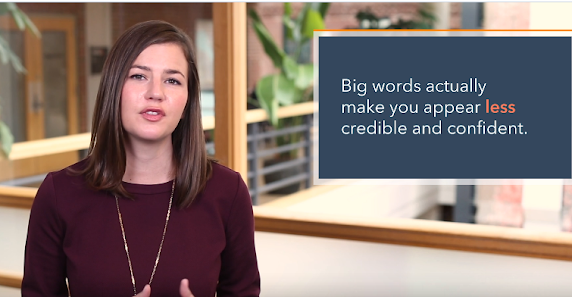To do our work, we all have to read a mass of papers. Nearly all of them are far too long. This wastes time, while energy has to be spent in looking for the essential points.Anticipating the style of writing that we have come to expect in short form content online, Churchill offered four specific directions for removing anything extraneous:
Search This Blog
Wednesday, March 23, 2022
Churchill's guide to writing
Saturday, February 5, 2022
Make your content as accessible as possible
The certificates above show that I have just completed the HubSpot Academy courses on content marketing and SEO. I did pick up a few tips, but the best part of it was the feeling of gratification that my understanding of best practices from years of experience was spot on. Unfortunately, the businesses I sometimes worked for often deviated from such best practices.
Unlock those gates!
For example, I'm generally not in favor of gating good content. You want it to be read, so why create barriers to getting it read? I fully understand that you want to force people to give you their contact information to follow up with potential leads. However, as the course points out, you can encourage some kind of opt-in even without blocking the content.
Semrush, the online visibility platform, agrees that introducing a layer of friction -- even if it is as simple as entering an email address -- will turn away readers. That is not something you want to do in the awareness stage when you wish to attract as many eyeballs as possible.
"You usually wouldn’t start a relationship with gated content. You have to woo your readers first, showing that your content is worth their time and — later on — their personal information." - Semrush
HubSpot's course suggestion was to have the content accessible with an option for the reader to download it as a PDF. People will voluntarily download content they like to have available to read at leisure, particularly longer form content. My guess is that seeing things first the first time on a smartphone likely contributes to that practice even more.
Keep it simple!
I also felt particularly gratified about another explicit guideline it gives that I've clashed with some clients over in the past. That is to use clear, direct language rather than jargon or what you believe is a very impressive vocabulary filled with the types of words students used to memorize for the SATs. It's a mistake to believe that you sound smarter by using big words, as the really confident person will explain even more complex topics as clearly as possible (think "explain it to me like I'm five").
I still remember what my composition instructor said about Winston Churchill, who was a highly capable speaker and writer. As the British Prime Minister during WWII, he didn't say, "The received communication from France is extremely unfavorable." Instead, he said, "The news from Paris is very bad."
The contrast to Churchill's direct and honest approach appears in Emperor Hiroshito's observation after the devastation of two atomic bombs, "The war situation has developed not necessarily to Japan's advantage."
Consider which statement you would consider more trustworthy as a source, and remember that when crafting your own content.
screenshot from https://app.hubspot.com/academy/21390613/tracks/15/377/2059
I took the liberty of grabbing a screenshot from the HubSpot video as proof of what I tried very tactfully to convey to a few of my recent clients. Unfortunately, they refused to get the point. In one case, they insisted they have to avoid using "layman" terms. In the other, they insisted that really smart people speak that way.
P.S. Semrush also corroborated that point in a tweet that went up just today. Here's the final step in its short thread on how to format your content for search engines & target featured snippets:
✍️ Finally, tighten up your page’s copy. Try to use short, direct sentences with language that isn’t too complicated. Good luck 👋
— Semrush (@semrush) February 9, 2022Related:
-
Bridge near Bear Mountain, photo by Ariella Brown I saw the title in my email and knew I really shouldn't click it, but my curiosity go...
-
Edison holding a lightbulb No, Edison didn’t invent search engine optimization. But he did make a habit of tinkering around until he fou...
-
No more boots for Ms. Green and other changes for M&M's candies A major component of marketing is tapping into trends and making an...









